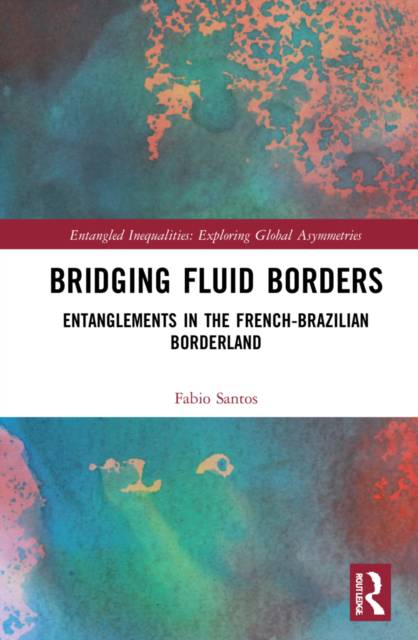
Bedankt voor het vertrouwen het afgelopen jaar! Om jou te bedanken bieden we GRATIS verzending (in België) aan op alles gedurende de hele maand januari.
- Afhalen na 1 uur in een winkel met voorraad
- In januari gratis thuislevering in België
- Ruim aanbod met 7 miljoen producten
Bedankt voor het vertrouwen het afgelopen jaar! Om jou te bedanken bieden we GRATIS verzending (in België) aan op alles gedurende de hele maand januari.
- Afhalen na 1 uur in een winkel met voorraad
- In januari gratis thuislevering in België
- Ruim aanbod met 7 miljoen producten
Zoeken
€ 290,45
+ 580 punten
Omschrijving
Interweaving rich ethnographic descriptions with an innovative theoretical approach, this book explores and unsettles conventional maps and understandings of Europe and the Americas. Through an examination of the recently inaugurated cross-border bridge between France's overseas department of French Guiana and Brazil's northern state of Amapá, which effectively acts as a one-way street and serves to perpetuate inequalities in a historically deeply entangled region, it foregrounds the ways in which borderland inhabitants such as indigenous women, illegalised migrants, and local politicians deal with these inequalities and the increasingly closed Amazonian border in everyday life. A study that challenges the coloniality of memory, this volume shows how the borderland along and across the Oyapock River, far from being the hinterland of France and Brazil, in fact illuminates entangled histories and their concomitant inequalities on a large scale. As such, it will appeal to scholars of sociology and border studies with interests in postcolonialism, memory, and inequality.
Specificaties
Betrokkenen
- Auteur(s):
- Uitgeverij:
Inhoud
- Aantal bladzijden:
- 154
- Taal:
- Engels
- Reeks:
Eigenschappen
- Productcode (EAN):
- 9781032045115
- Verschijningsdatum:
- 31/12/2021
- Uitvoering:
- Hardcover
- Formaat:
- Genaaid
- Afmetingen:
- 156 mm x 234 mm
- Gewicht:
- 412 g

Alleen bij Standaard Boekhandel
+ 580 punten op je klantenkaart van Standaard Boekhandel
Beoordelingen
We publiceren alleen reviews die voldoen aan de voorwaarden voor reviews. Bekijk onze voorwaarden voor reviews.









